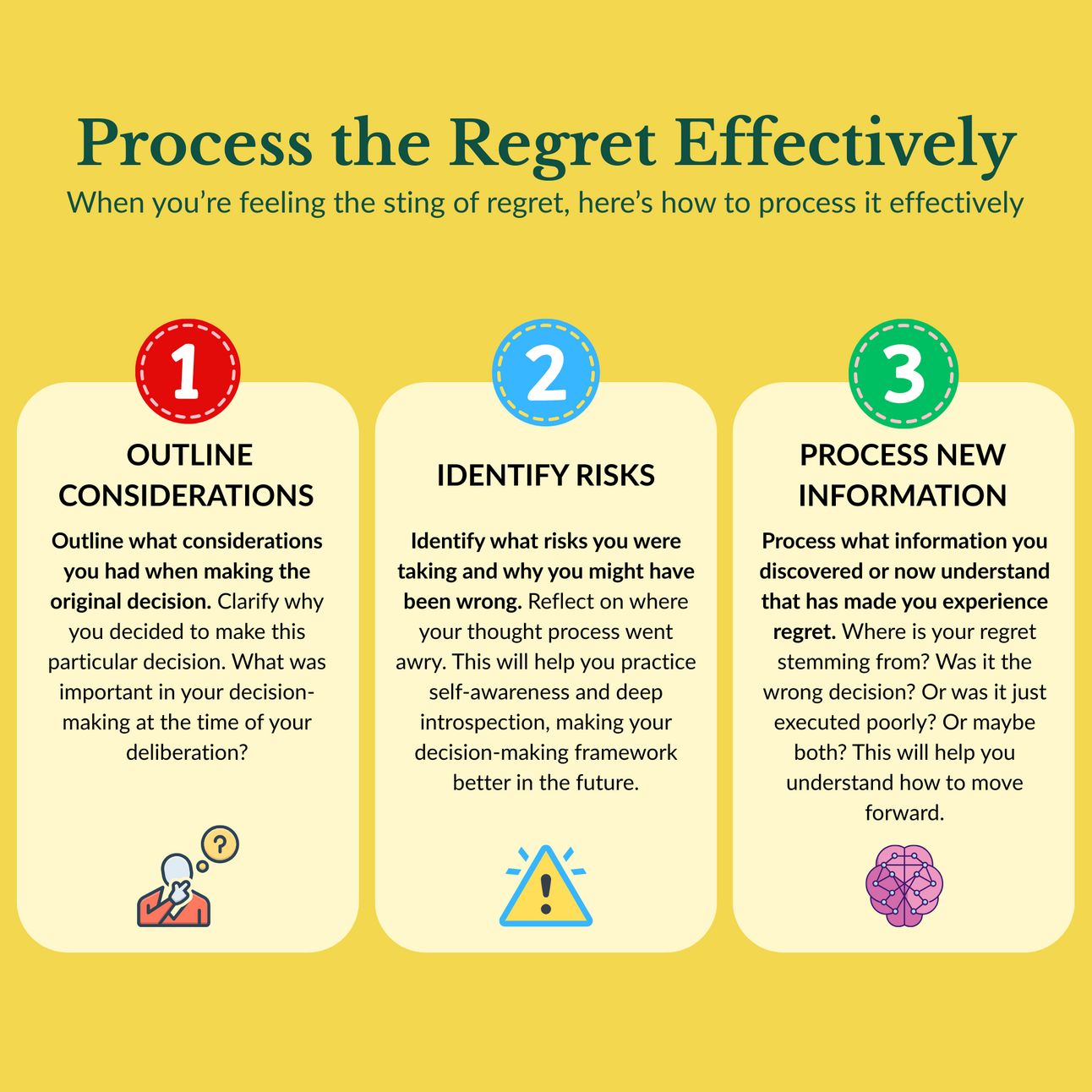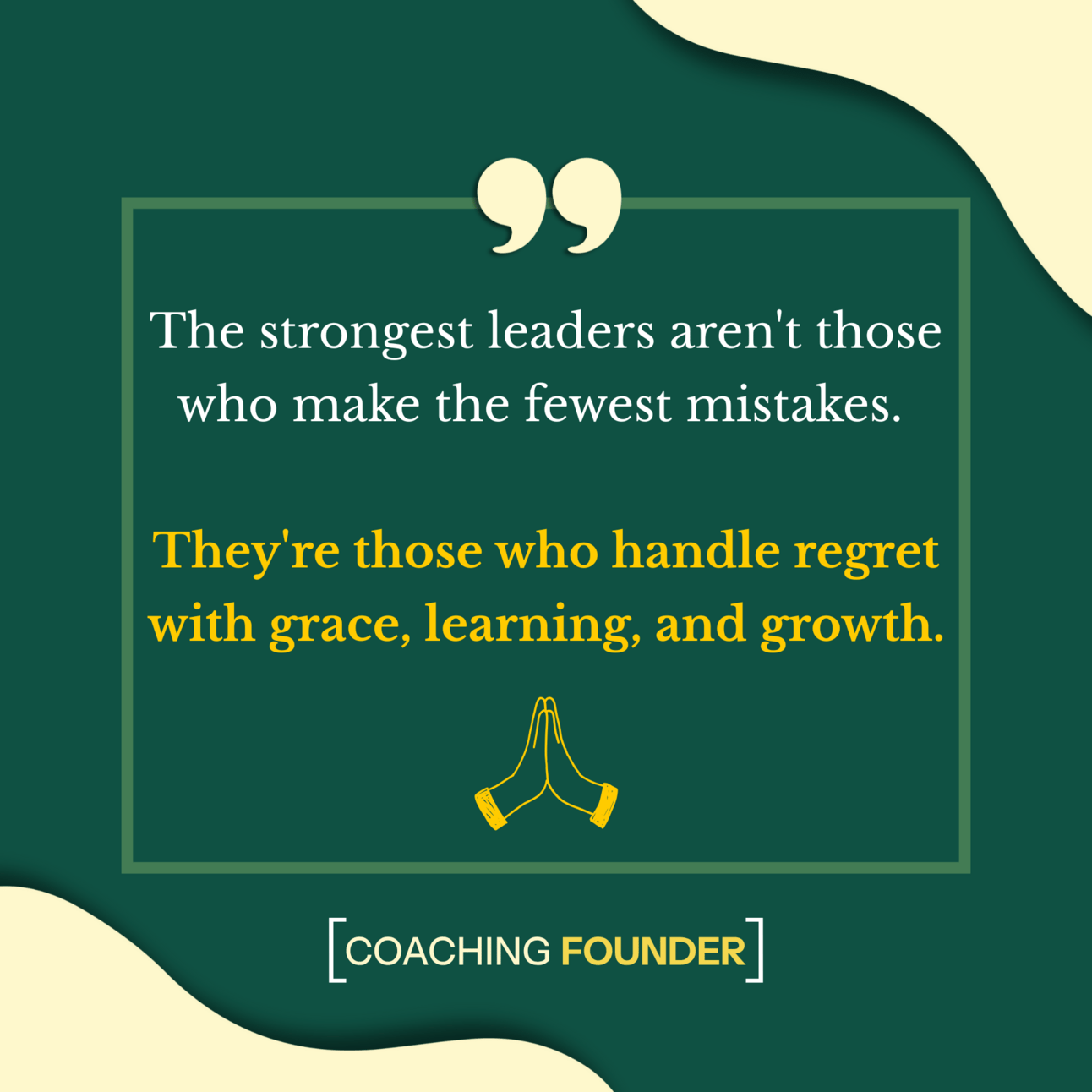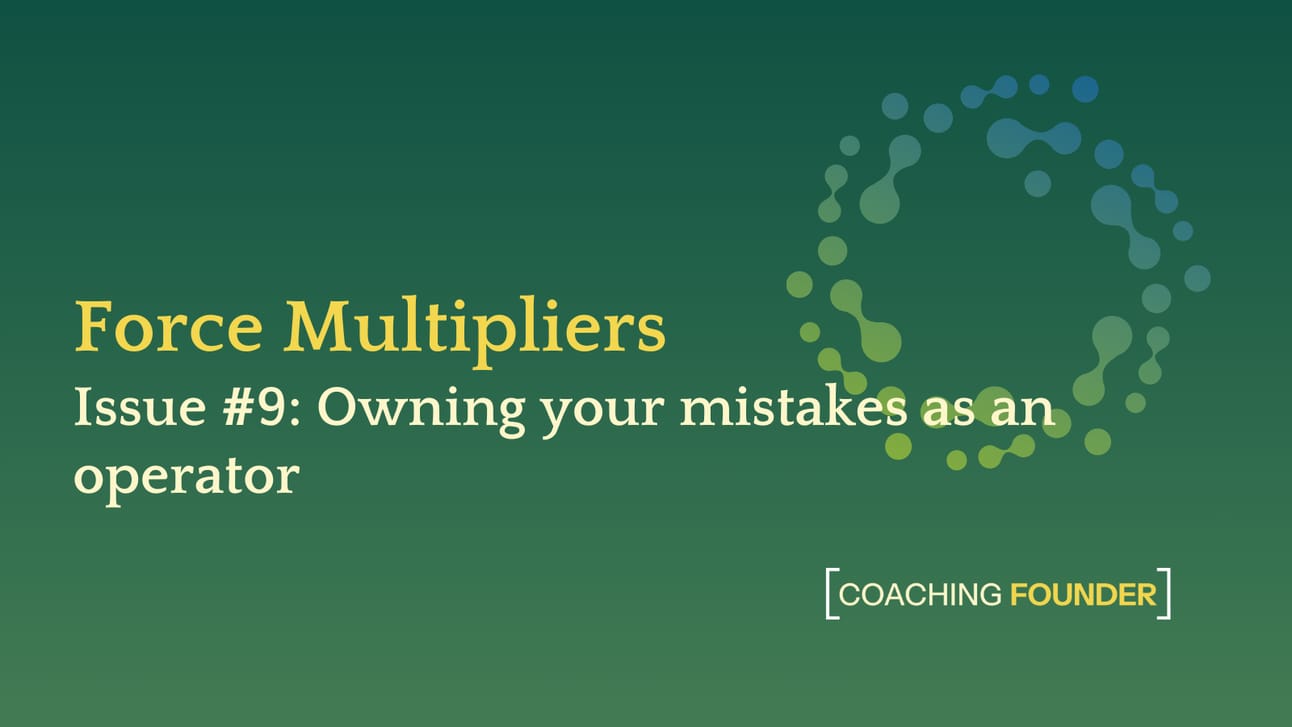- Force Multipliers
- Posts
- How Great Leaders Handle Regret
How Great Leaders Handle Regret
A tactical guide to recovering from decisions that didn’t go as planned (and modeling resilience for your team).
Hi! Welcome to another issue of Force Multipliers, your weekly briefing from Regina Gerbeaux, where Silicon Valley's behind-the-scenes operators get battle-tested frameworks for their toughest challenges, from putting out chaotic fires to managing strong personalities.
Dear Regina,
I'm the CEO of a Series B startup that's growing rapidly. Recently, I made a significant decision that I deeply regret. I implemented a mandatory five-day return-to-office policy with zero exceptions, as I believe in-person work will result in the best outcomes for the company. Anyone who couldn't comply would be automatically terminated, though I would make sure to give them very generous severance.
I thought I was doing what was best for the company, but the fallout has been catastrophic. People have been outraged and I’m at risk of losing a huge chunk of my team.
Not only have I lost valuable team members, but my closest friends at the company are now gone too. Outside of work, I used to go to bars and outings with them and we’d shoot the shit, but now they’re all noticeably excluding me from hangouts because they don’t trust me. They saw my behavior as tone-deaf at best and unethical at worst. Beyond losing valuable teammates, it feels like I’ve lost my biggest support system.
I stand by the actual decision to return to office, but I regret how I handled it. I announced it with no implementation plan, no conversation, and no consideration for the human impact.
How do the leaders you work with handle regret effectively? Is there a way I could have preserved these relationships without completely reversing my decision?
(CEO, Series B company, ~80 people, ~$45M raised)
Dear Operator,
I want to start by acknowledging something important: as a startup CEO in a high-growth environment, you'll make countless decisions with limited information, unclear outcomes, and significant stakes. Regret isn't just possible - it's inevitable.
One of the greatest things I learned was understanding "discovery of new information" as a concept.
Sometimes we make decisions based on what we know in a given moment, but reality is constantly shifting. We're always learning new information, and it's not enough to dig our heels in because of our original decision. We reserve the right to change our minds when we discover new information.
Often, that's precisely when regret appears: when new information sinks in and we wish we'd done something differently. The concept of "discovery of new information" gives us permission to change course and have grace for ourselves.
Here’s the playbook on how great leaders handle regret.
The Playbook on Handling Regret
Handling regret can be done effectively in two large steps: processing and responding.
Step 1: Process the regret effectively.
When you're feeling that sting of regret, here's a framework to process it effectively:
Outline what considerations you had when making the original decision.
Clarify why you decided to make this particular decision. What was important in your decision-making at the time of your deliberation?Identify what risks you were taking and why you might have been wrong.
Reflect on where your thought process went awry. What risks did you underestimate? Where were your blindspots? This will help you practice self-awareness and deep introspection, making your decision-making framework better in the future.Process what information you discovered or now understand that has made you experience regret.
Where is your regret stemming from? Was it the wrong decision? Or was it just executed poorly? Or maybe both? This will help you understand how to move forward.

Step 2: Decide how you will respond depending on the severity of the regret.
When talking to the affected parties, what you say should always include:
How you made your decision in the first place
What new information you discovered in the process
Where you take full accountability and ownership
What you intend to do to fix it
Depending on how severe the mistake was, choose the appropriate-leveled response.
I wrote about this in this issue of Force Multipliers and believe you should go read that playbook:
For ease, here are a few examples of how to handle your regrets based on the severity of the mistake:
🥲 For Low-Severity Mistakes
Example: You rolled out a minor product update that had a few bugs, causing customer frustration but no lasting damage.
The response should be proportional:
👉️ A straightforward acknowledgment of the issue
👉️ A brief explanation of what happened
👉️ A clear plan for fixing it
👉️ No excessive apologies or dramatic language
"We identified some bugs in our recent update. Our team is deploying fixes now, and we expect everything to be resolved by tomorrow. We appreciate your patience."
🫣 For Medium-Severity Mistakes
Example: You missed an important investor deadline or made a hiring decision that didn't work out, causing internal disruption.
The response needs more depth:
👉️ Take ownership without deflecting blame
👉️ Explain what went wrong in your process
👉️ Share what you've learned
👉️ Outline specific changes you're implementing
"I made a mistake in our hiring process for the CTO role. I rushed the decision because I felt pressure to fill the position quickly. I've learned that rushing these critical decisions costs more in the long run. Moving forward, I'm implementing a more thorough evaluation process and involving more team members in key hires."
🥵 For High-Severity Mistakes
Example: A major security breach, significant financial mismanagement, or a cultural crisis like your return-to-office situation.
This requires your full leadership presence:
👉️ Address the issue directly and with appropriate gravity
👉️ Take full responsibility where it belongs to you
👉️ Listen attentively to those affected
👉️ Make amends in a meaningful way
👉️ Commit to specific, structural changes
👉️ Follow through visibly on those commitments
In your specific case, you might say something like:
"The way I handled our return-to-office policy was deeply flawed. While I believe in-person collaboration is important for our company, I failed to consider how this change would impact your lives. I didn't create space for discussion or a transition plan.
I'm not reversing the policy, but I am modifying it to include a three-month transition period and flexibility provisions. Most importantly, I want to hear your concerns directly. I've set up office hours every day this week to hear you out and want to express my regret in how I handled this."
Conclusion
Overall, what matters most in handling regret is:
Taking extreme ownership and 100% accountability
Explaining how things will be different moving forward
How you will avoid making the same mistakes again in the future
Making sure people feel heard in the process

The strongest leaders aren't those who make the fewest mistakes. They're those who handle regret with grace, learning, and growth. In the fast-paced world of startups, your ability to process regret effectively might be the difference between a company that fails and one that builds lasting value.
Until next time,

Resources Mentioned 📌
Owning your Mistakes as an Operator | Force Multipliers, Issue #9
Was this newsletter forwarded to you? Are you here for the first time? If so, remember to subscribe below…
Want more operational content?
Check out Coaching Founder for over a dozen free, downloadable Notion templates to use at your company, and tons of write-ups on how to level up your execs, your teams, and yourself.
About Regina Gerbeaux
 | Regina Gerbeaux was the first Chief of Staff to an executive coach who worked with Silicon Valley’s most successful entrepreneurs, including Brian Armstrong (Coinbase), Naval Ravikant (AngelList), Sam Altman (OpenAI / Y Combinator), and Alexandr Wang (Scale). |
Shortly after her role as Chief of Staff, then COO, she opened her own coaching practice, Coaching Founder, and has worked with outrageously talented operators on teams like Delphi AI, dYdX, Astronomer, Fanatics Live, and many more companies backed by funds like Sequoia and Andreessen Horowitz.
Her open-sourced write-ups on Operational Excellence and how to run a scaling company can be found here and her templates can be found here.
She lives in the Pacific Northwest with her partner Lucas and dog Leia, and can be found frequenting 6:00AM Orangetheory classes or hiking trails nearby.


Reply